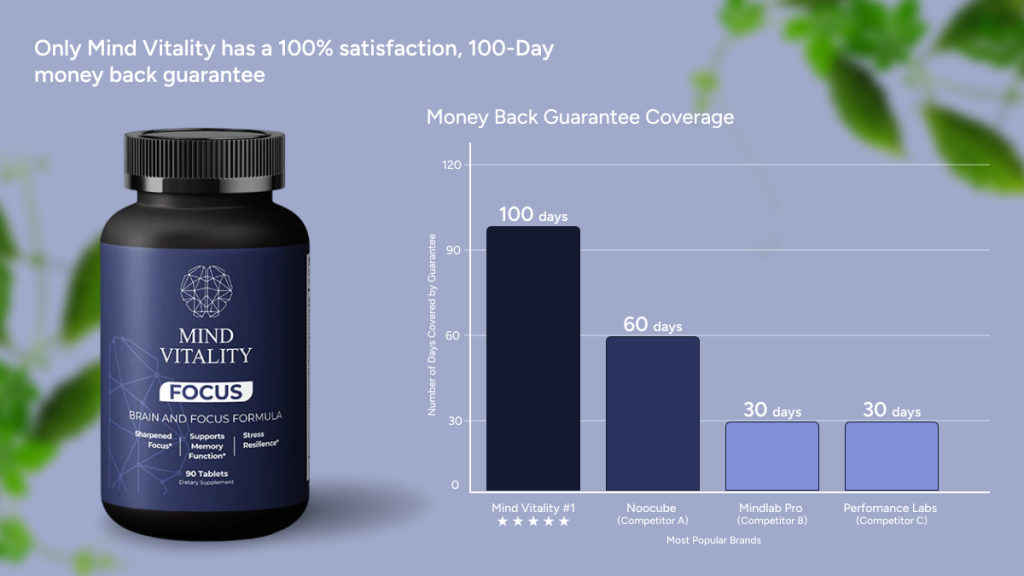Table of Contents
ToggleBrain fog after eating refers to a state of cognitive impairment characterized by memory problems, lack of mental clarity, poor concentration, and difficulty focusing that occurs after meals.
It can be a frustrating experience, impacting daily functioning and overall mental well-being.
Key Takeaways:
- Brain fog after eating is a common symptom characterized by memory problems, lack of mental clarity, poor concentration, and difficulty focusing.
- It can be caused by various factors including stress, lack of sleep, hormonal changes, diet, medications, and certain medical conditions.
- Diagnosing brain fog after eating may involve physical examinations, blood tests, and other diagnostic tools.
- Treatment options include addressing underlying causes, making lifestyle changes, adjusting medication dosage, and managing medical conditions.
- Adopting a brain-healthy diet and incorporating supplements known to support cognitive function may help alleviate brain fog after eating.
Common Causes of Brain Fog After Eating
Several factors can contribute to brain fog after eating, ranging from specific foods to how our bodies digest and process nutrients.
Food-induced brain fog is a common cause, with certain foods triggering cognitive impairment and postprandial mental decline.
Processed foods high in sugar and unhealthy fats can lead to inflammation and oxidative stress, affecting brain function.
Food intolerances or sensitivities, such as gluten or dairy, can cause brain fog symptoms due to an immune response or difficulty digesting certain proteins.
Brain fog can also be caused by issues with digestion. When we eat, our bodies work to break down food and extract nutrients.
Conditions such as leaky gut syndrome, small intestinal bacterial overgrowth (SIBO), or an imbalance in gut microbiota can affect the absorption of essential nutrients, impacting brain function.
Stress and hormonal changes can also contribute to brain fog after eating. Chronic stress releases cortisol, a hormone that can interfere with cognitive function.
Hormonal fluctuations, such as those experienced during menstrual cycles or menopause, can also affect brain fog.
Medications, including antidepressants, antihistamines, and certain pain medications, may have side effects that include cognitive impairment and brain fog.

Common Causes of Brain Fog After Eating
- Food-induced brain fog
- Brain fog and digestion
- Stress and hormonal changes
- Medications
Understanding the common causes of brain fog after eating can help individuals identify potential triggers and make necessary adjustments to their diet and lifestyle.
By focusing on a brain-healthy diet, managing stress levels, addressing digestion issues, and being mindful of medication effects, individuals can work towards reducing brain fog and improving overall cognitive function.
| Factors | Causes |
|---|---|
| Specific Foods | Processed foods high in sugar and unhealthy fats |
| Food Intolerances | Gluten, dairy, and other sensitivities |
| Digestion Issues | Leaky gut syndrome, SIBO, gut microbiota imbalance |
| Stress | Chronic stress and increased cortisol levels |
| Hormonal Changes | Menstrual cycles, menopause |
| Medications | Antidepressants, antihistamines, pain medications |
It’s important to note that brain fog after eating can vary from person to person, and identifying the specific causes may require trial and error.
Consulting with a healthcare professional, such as a doctor or registered dietitian, can provide personalized guidance and support in managing brain fog symptoms.

Diagnosing Brain Fog After Eating
Diagnosing brain fog after eating usually involves a thorough examination of the individual’s diet and medical history, as well as various tests to rule out underlying conditions.
One of the first steps in the diagnosis process is to analyze the individual’s diet and identify any potential triggers or food intolerances that may be contributing to the brain fog.
This can be done through careful observation and a food diary, where the individual records what they eat and any symptoms experienced afterward.
In addition to diet, a comprehensive medical history is crucial to understanding the potential causes of brain fog.
So, first off, we gotta chat about any meds or supplements someone’s taking. Because, you know, some pills or even not getting enough nutrients can mess with your thinking.
Lifestyle factors like stress, sleep, and exercise affect cognitive function.
Once the diet and medical history have been evaluated, further tests may be ordered to investigate underlying conditions.
This can include blood tests to check for nutrient deficiencies, hormonal imbalances, or autoimmune markers.
Doctors use brain imaging and cognitive tests to evaluate brain function and exclude diseases or abnormalities.
| Tests for Diagnosing Brain Fog After Eating | Purpose |
|---|---|
| Blood tests | To check for nutrient deficiencies, hormonal imbalances, or autoimmune markers that could contribute to brain fog. |
| Brain imaging | To assess brain structure and rule out any abnormalities or neurodegenerative diseases. |
| Cognitive tests | To evaluate cognitive function and identify any areas of impairment or decline. |
Treating and Managing Brain Fog After Eating
The first step in managing brain fog is to identify and address any potential triggers or contributing factors.
This may require keeping a food diary to track any correlations between certain foods and the onset of brain fog symptoms.
Eliminating or reducing the consumption of known food allergens or intolerances, such as gluten, dairy, or artificial additives, can often provide relief.
Eat fruits, vegetables, whole grains, and lean proteins to boost brain function and reduce cognitive impairment.
Lifestyle changes can also play a significant role in managing brain fog.
Stress management techniques, such as meditation, deep breathing exercises, and regular exercise, can help reduce the cognitive impact of stress and improve mental clarity.
Getting adequate sleep is crucial for brain health, so establishing a consistent sleep routine and practicing good sleep hygiene, such as avoiding screens before bed and creating a calm sleep environment, is essential. I
Incorporating certain supplements into your routine may provide additional support for managing brain fog after eating.
Omega-3 fatty acids, found in fish oil or flaxseed oil, have been shown to support cognitive function. Artichoke extract has been suggested to improve memory and mental clarity.
Ginseng, a traditional herb, may also help reduce brain fog symptoms. N-acetyl-L-cysteine (NAC) is an antioxidant that has shown potential to support brain health and reduce cognitive impairment.
| Brain Fog Supportive Supplements | Recommended Dosage |
|---|---|
| Omega-3 fatty acids | 1,000-2,000 mg per day |
| Artichoke extract | 400-800 mg per day |
| Ginseng | 200-400 mg per day |
| N-acetyl-L-cysteine (NAC) | 600-1,200 mg per day |
By taking steps to support optimal brain health and addressing underlying causes, individuals experiencing brain fog can often find relief and regain mental clarity.
Adopting a Brain-Healthy Diet and Supplements
A brain-healthy diet, rich in nutrient-dense foods, can play a significant role in reducing brain fog after eating and promoting optimal cognitive function.
By fueling our bodies with the right nutrients, we can support brain health and improve mental clarity. Incorporating the following foods into our diet can help combat brain fog:
- Fatty fish: Salmon, sardines, and trout, rich in omega-3s, boost brain health and reduce inflammation.
- Leafy greens: Vegetables like spinach, kale, and broccoli are packed with antioxidants and vitamins that support brain function.
- Berries: Blueberries, strawberries, and blackberries are rich in antioxidants that can protect the brain from oxidative stress and improve memory.
- Whole grains: Opting for whole grains like quinoa, brown rice, and oats provides a steady release of glucose to the brain, promoting sustained mental energy.
- Nuts and seeds: Almonds, walnuts, flaxseeds, and chia seeds are excellent sources of healthy fats, vitamin E, and antioxidants that nourish the brain.
In addition to a brain-healthy diet, certain supplements have shown promise in reducing brain fog and supporting cognitive function. Here are some supplements to consider:
| Supplement | Benefits |
|---|---|
| Omega-3 fatty acids | May improve memory and cognitive performance |
| Artichoke extract | May enhance memory and mental clarity |
| Ginseng | May improve attention, focus, and overall cognitive function |
| N-acetyl-L-cysteine | May support detoxification and protect against oxidative stress |
It’s important to note that while adopting a brain-healthy diet and incorporating supplements can be beneficial, individual results may vary.
It’s always a good idea to consult with a healthcare professional before making any significant changes to your diet or starting any new supplements.
A Word from HealthyVibe
Memory issues and lack of focus can arise from stress, sleep deprivation, diet, medications, and medical conditions.
Diagnosing brain fog after eating involves physical examination, blood tests, and other diagnostic tools that healthcare professionals may use.
By recognizing symptoms, identifying causes, and applying remedies, individuals can reduce post-eating brain fog.
With a clearer mind and improved cognitive function, they can lead a more productive and fulfilling life.












